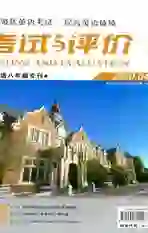形容词和副词比较等级考点探究
2020-10-26王秀凤
王秀凤
一、形容詞和副词比较级和最高级的构成
1. 形容词比较级形式的记忆口诀
比较级,有变化,一般词尾加er;词尾不发音e简单化,之后另把-r加。辅音字母+y型,改y为i,加er;一辅重读闭音节,词尾字母应双写。双、多音节更容易,之前加more就可以。
2. 形容词比较级不规则变化口诀
“俩好”(good / well)是better;“俩多”(many / much)是more。“坏/病”(bad / ill)是worse;“老/远”(old / far)变化有两个。
3. 形容词和副词最高级变化
(1) 规则变化
① a. 一般情况下,单音节和部分双音节形容词、副词,在原级后加-est,构成最高级。
long→longest, clever→cleverest, fast→fastest, high→highest
b. 以不发音的字母e结尾的,直接加-st构成最高级。
nice→nicest, cute→cutest, late→latest
c. 以辅音字母+y结尾的双音节形容词、副词,变y为i,再加-est构成最高级。
heavy→heaviest, friendly→friendliest, early→earliest
d. 重读闭音节且词尾只有一个辅音字母的,先双写这个辅音字母,再加-est构成最高级。
big→biggest, thin→thinnest, fat→fattest
② 多音节和部分双音节形容词、副词,在原级前加most构成最高级。
creative→most creative, popular→most popular, quickly→most quickly
③ 由“动词加后缀-ed或-ing”构成的形容词,其最高级形式常在形容词前加most。
most interesting, most boring, most relaxed, most excited
④ 由“形容词+后缀-ly”构成的副词,其最高级常在该副词前加most。
cheaply→most cheaply, comfortably→most comfortably
(2) 不规则变化
有一部分形容词、副词的最高级变化没有规律,称为不规则变化,我们应牢记。
good / well→best, bad / ill / badly→worst, many / much→most, little→least, far→farthest / furthest, old→oldest / eldest
二、形容词和副词比较级的用法
1. 比较级的位置
形容词比较级通常用于连系动词之后或名词之前;副词比较级常用于实义动词之后。
My bedroom is bigger than yours. 我的卧室比你的大。
Lily runs faster than before. 莉莉跑得比以前更快了。
2. 比较级的常用句型
(1) “A...+比较级+than+B”表示“A比B更……”, 前后相比较的两个事物属于同类。
(2) “比较级+and+比较级”表示“越来越……”。
(3) “the+比较级, the+比较级”表示“越……,就越……”。
(4) 询问两者选其一时,常用“Which / Who...+比较级, A or B?”句型,表示“A和B哪个更……?”。
3. 可用much, a little, even, still, a lot等修饰比较级。
4. 注意:当比较级后有“of the two”之类的表示两者的短语时,比较级前要加定冠词the。
三、形容词和副词最高级的用法
1. 三个或三个以上的人或事物进行比较时,使用形容词和副词的最高级,后面通常用of / in / among... 来表示比较的范围。
2. 最高级的常用句型
(1) “A...+the+最高级+比较范围”表示“A在某范围内最……”。
(2) “one of+the+形容词最高级+名词复数”表示“最……之一”。
(3) “the+序数词(first除外)+形容词最高级+单数可数名词”表示“第几(大、长等)……”。
(4) 询问三者选其一时,常用“Which / Who...+最高级, A, B or C?”句型,表示“A、B和C哪个最……?”。
3. 其他表示最高级含义的句型。
(1) “A...+比较级+than+any other+单数可数名词”表示“A比其他任何一个……都……”,比较级形式表示最高级含义。
(2) “否定词+比较级”和“否定词+so+形容词/副词原级+as”结构也可以表示最高级含义。
4. 其他表示比较关系的句型
(1) “A...+as / so+形容词/副词原级+as+B”表示“A与B一样(A、B两者程度相同) ”。
(2) “A...+not as / so+形容词/副词原级+as+B”表示“A不如B(A、B两者程度不同) ”。
【考题链接】
1. —You are singing to the plants!
—That
A. slower B. better C. harder D. slow
2. —This T-shirt is a bit expensive for me.
—But this is ________ one in our shop, sir.
A. cheap B. cheaper C. the cheapest D. cheapest
3. —Mike plays the drums so wonderfully!
—Of course. He is ________ than any other students in his class.
A. talented B. more talented C. less talented D. the most talented
4. —What do you think of the band
—It could be ________. I think they
A. good B. better C. bad D. worse
5. —Who sings ________ in your class?
—Li Jing does.
A. most beautifully B. most beautiful C. more beautifully D. more beautiful
6. To make rivers ________ than before, everybody is supposed to protect them.
A. dirty B. dirtier C. clean D. cleaner
7. The flying squirrel might be one of ________ animals you could meet during the trip.
A. strange B. stranger C. strangest D. the strangest
8. The living room becomes ________ as the sunlight comes in through the windows.
A. bigger B. cleaner C. quieter D. brighter
9. Sam is 11 years old. Peter is 16 years old. Peter is 5 years ________ than Sam.
A. older B. shorter C. newer D. longer
10. —There will be no winner in the trade war between China and the US.
—I agree. If we can
A. bad B. badly C. worse D. worst
